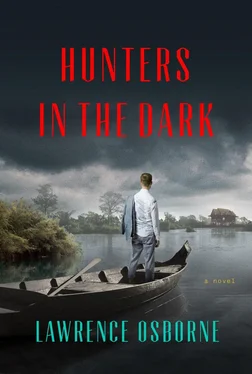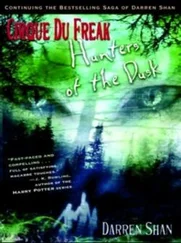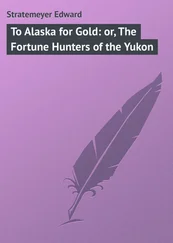Ouksa shook his head.
“Why was his passport under your seat?”
“I found them together in the barang’s car. I don’t know—”
The face was open. It was childish and blond, with wide-open slightly crazy eyes, those of a man who did not believe what had just happened to him. Was he alive or dead?
“Why did he…?”
Davuth stared out at the sugarcane as if the answer might be there.
One can feel a human heart from a great distance; the hunter feels his prey even in a great darkness.
“They must be friends,” he murmured. “In any case — you don’t know.”
“No, sir.”
“It doesn’t make sense. But you can go. I’m getting sick of looking at your miserable face. Wash your damn hands when you get home. Don’t talk to your wife. Don’t talk to your children. I’ll know if you do.”
—
Davuth waited for Ouksa to drive away before walking thoughtfully around the scene. Tire marks and footprints, yes, but that day’s rain would wash them away quickly. There was just the Saber. It was best left where it was, untampered and abandoned. It was a rusting hulk anyway, it would be scavenged by midday. He walked down to the cane again and listened for the sound he had heard earlier.
The stalks, defying him, waved back and forth in the breeze and disclosed nothing. The horizon was lit. Everything had returned to normal. He thought it all through as slowly as he could and soon he realized that the less he did the better. There was no one above him in the police hierarchy at that local level who might look over his shoulder or ask him an inconvenient question. He was magnificently alone.
He drove down to the river amid the cock crows and went to a sand spit he knew and dragged the body down there and let it go gently into the water and waited until the current shifted it and bore it out into deeper water where it could move. He felt a quiet satisfaction doing it. He was familiar with death, there was nothing magical or awesome about it. It appeared and it disappeared and in that respect it was very much like life.
Davuth’s station lay seven miles downriver from that place. It was an old French schoolhouse with perforated cement windows in some rooms and a dusty yard shaded by dying trees. There were two cars and a motorbike and a servant cleaned the rooms and made the two men meals when his other officer was there. There was a desolation about the road the station stood on. A few women had food stalls there during the day and by the gates there was always a tray of split chicken pieces and fish roasting slowly in the sun. The pale blue sign with the words Police Station in English and Khmer was slowly rusting at the edges and beginning to look unimposing. He sat alone for many hours in his office with the blinds down smoking bad cigars and reading horoscopes in the local papers.
When the Internet was up he played online poker and lost small amounts week by week, but indifferently and with a kind of method, and when it was down he played patience with himself and talked on the phone with the business owners he shook down now and then. He called his daughter at her school and told her to be home on time and thought for five minutes every day of his dead wife and then rode around the area in the SUV looking for what he called “signs.” His days were usually empty and serene. On most of them, he went to the river and sat there quietly with a packed lunch and waited for the bodies of barangs to show up. It was quite a rare occurrence but there was one every month and then he would be busy.
They were mostly young, early middle age. Europeans, Australians, a few Americans and Canadians, people drifting eastward, doping up in Laos and Luang Prabang and coming down in the dry season to the places in the kingdom where they could winter for a few dollars and party among themselves. They picked up Khmer girls and Yaa Baa and Burmese heroin and went their merry way en route to enlightenment. The curious thing was that he had seen more of them in these last years.
They were middle-class and unemployed, or so it seemed, their education now of little value, and they seemed to be able to scrounge enough money to take leave of their senses for months on end. Once upon a time, the Khmers had been in awe of them. But now their dirtiness and scruffiness and unruliness had dimmed their image at the very moment that the Chinese and the Thais had come into considerable amounts of money. The barangs no longer seemed as formidable as their grandparents, even if their grandparents had been hippies in the sixties. At least the hippies back then had class — though the sixties were an age that seemed prehistoric from the perspective of a Khmer of fifty-four, precisely because he remembered its peaceful wonders. Back then the kingdom had been a paradise on earth. The king upon his throne, the guerrillas far away in their jungles, the war in Vietnam not yet close and callous in the day-to-day. The streets were filled with girls in miniskirts. But he, to tell the truth, had mightily enjoyed the Revolution.
The barang grandchildren of that age now wandered the East with no prospects and they dropped like drunken flies into his river, forcing him to scoop them out. Naturally he knew all about the American (though he had pretended otherwise to the gullible Ouksa), but even the American could not pay for all the cremations. He, Davuth, did his best. He went through the possessions that were left behind — usually little more than a few rags and useless books but with a family heirloom ring here and there — and then went through all the desultory procedures. The call to the relevant embassy, the filling-out of the report forms, the inventories and then, lastly, the sad and lonely cremation at the wat with only himself present.
He would wait for weeks for relatives to appear; they rarely did. The remains were forwarded to the embassy and nobody looked very seriously at the paperwork. But he was paid nothing and it was expected of him. Over the years he had taken advantage of the situation. The missing rings and wallets and brooches and credit cards were never a subject of inquiry by his superiors. Quietly, he sold them on the black market and saved up for his daughter’s college fund. Everyone has to live, no matter how they do it.
He made himself a coffee in the station kitchen and called the maid and told her she could stay home that day. He knew that someone would call from the river in about two or three hours and he waited patiently for that call while he sipped his coffee and watched the sun rise over the dust-blown road. His officer was away for the morning having a medical examination. He went out into the first rays of the sun and sat in a chair and looked over at the SUV, which he had cleaned thoroughly. While it was still dark he had driven to his house, burned the towel and the newspapers from the back and then taken the money and the passports and put them in the safe in his room. Before coming to the station he took out the passports, looked them over again and decided to take them with him to the station. He looked at them again now. The American’s was covered with stamps from many countries. The Englishman’s had nothing in it. They looked like men who were polar opposites and yet their passports were together. They were not together for reasons he yet understood, but the face of the Englishman had something sympathetic and unnerving about it. The eyes were so straight, there was no deviance in them, and he was only twenty-eight. His passport had been issued in London that same year. He did not look like the usual drifters who passed through Battambang — far from it. He looked like a wide-eyed innocent from a small town somewhere, but even the innocent can be driven mad by experience.
Читать дальше












